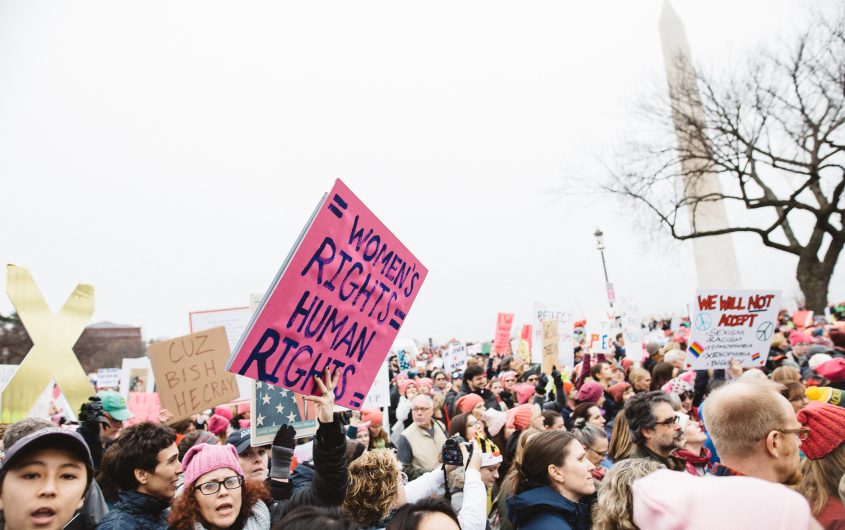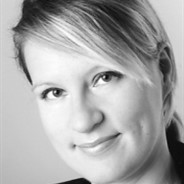
Molly Adams via Flickr
The Dilemmas of Promoting Gender Equality in Times of Polarization

Anne Jenichen
Aston University
Anne Jenichen is Lecturer (Assistant Professor) in Politics and International Relations at the Aston Centre for Europe, Aston University, Birmingham, UK. Her research focuses on the political impact of international norms and organizations; European human rights policy; the rights of disadvantaged groups, such as women and religious minorities; and on the politicization of religion in Europe. She holds a Diploma (equivalent to an MA) in Political Science from Free University Berlin and a Doctoral Degree in Political Science from the University of Bremen, Germany, where she also taught political science and European studies before joining Aston. She was Volkswagen Foundation Fellow at the Transatlantic Academy in Washington, DC (2014-15), Visiting Research Fellow at the Institut d‘Études Européennes, Université Libre de Bruxelles (2011), Research Fellow at the United Nations Research Institute for Social Development (UNRISD) in Geneva (2007-09), and Visiting Fellow at the Department of Sociology and Anthropology, Northeastern University, Boston (2007). For the Heinrich Böll Foundation in Berlin, she coordinated an international research project on “Religion, Politics, and Gender Equality” (2007-2010).
She is a 2018-2019 participant in AICGS’ project “A German-American Dialogue of the Next Generation: Global Responsibility, Joint Engagement,” sponsored by the Transatlantik-Programm der Bundesrepublik Deutschland aus Mitteln des European Recovery Program (ERP) des Bundesministeriums für Wirtschaft und Energie (BMWi).
The political landscapes in both countries are characterized by increasing polarization. In the U.S., a man became president who makes a spectacle of himself through derogative language and who tends to divide the American population. In Germany, the rise of the far-right Alternative for Germany (AfD) as the third-strongest party after the 2017 general elections marked a sea change in the German political landscape since the end of World War II and has roughened political discourse both in electoral campaigns and within the German Bundestag.
Protecting gender equality can run the risk of reinforcing the very polarization of politics and society if debates turn toxic.
Even though immigration has appeared to be the main polarizing issue, we should not forget about other important battlegrounds, such as gender equality, which often are at risk of being overshadowed by contentions about immigration. President Trump’s infamous sexist remarks on several occasions and the AfD’s affirmation of traditional gender roles, its rejection of gender mainstreaming, and its will to end funding for gender research illustrate their backward views on equality between women and men. Most women have understood that these political forces do not act in their interests, as demonstrated by the lower support for both Trump and the AfD among women compared to men. Nevertheless, promoting gender equality in times of such polarization poses two dilemmas. There is the risk that women’s rights to equality are endangered when political forces on the far-right rise, making it imperative for civil society activists to protect gender equality against their attacks. At the same time, and this is the first dilemma, protecting gender equality can run the risk of reinforcing the very polarization of politics and society if debates turn toxic, such as recently observed on American college campuses. Even as a supporter of gender equality, one should care about such division, because increasing polarization may not only bolster support for the far right, it may also endanger societal cohesion at large. In Germany, debates about gender equality are not as divisive yet as in the U.S. Here, however, another dilemma appears if feminist organizations in their attempt to protect women from sexual violence walk right into the trap of anti-Muslim stereotypes and thus legitimize and fuel racist arguments of the far right.
Considering these dilemmas, civil society activists and organizations would be well advised to avoid letting themselves get entangled in ideological battles on gender and sexism. Fixating on these battles will only harden polarization and division without alleviating gender inequalities. Instead, it seems to be indicated to focus on the practical situation of women and consider cooperation without ideological blinders on. This will not work on all topics, no doubt. But there are issues that women from both the left and right may jointly focus on without the risk of walking into the trap of division and xenophobia. Such common projects include, for instance, alleviating the situation of single parents, who primarily are women and who are particularly vulnerable to poverty but tend to be overlooked on many occasions. Another one may be preventing and addressing intimate-partner violence, whose survivors usually are women and which concerns women (and men) on the left and on the right.
Civil society should also not refrain from supporting their specific causes that may be met with opposition from the other side.
I do not mean to claim here that civil society organizations do not focus on these issues already. Good examples are the activities of interest groups, such as the German Association of Single Mothers and Fathers and the North American network Parents without Partners, as well as organizations fighting domestic violence, including the Central Service Point of Autonomous Women’s Shelters and the Federal Association of Women Advice Centers and Helplines – Women against Violence in Germany, and the National Network to End Domestic Violence or the network NOMore.org in the U.S. Given the similarities of their concerns and the differences with regard to the challenges they encounter in Germany and the U.S., a transatlantic exchange of experiences and best practices could also strengthen strategies of how to fend off right-wing attacks on gender equality on both sides of the Atlantic.
However, civil society should also not refrain from supporting their specific causes that may be met with opposition from the other side (that is what civil society and politics are about, after all). Withdrawing from contentious issues cannot be the solution either. But concentrating on common causes and being reminded of common concerns may help to moderate the aggression these battles often are fought out with and to alleviate their divisive repercussions.









